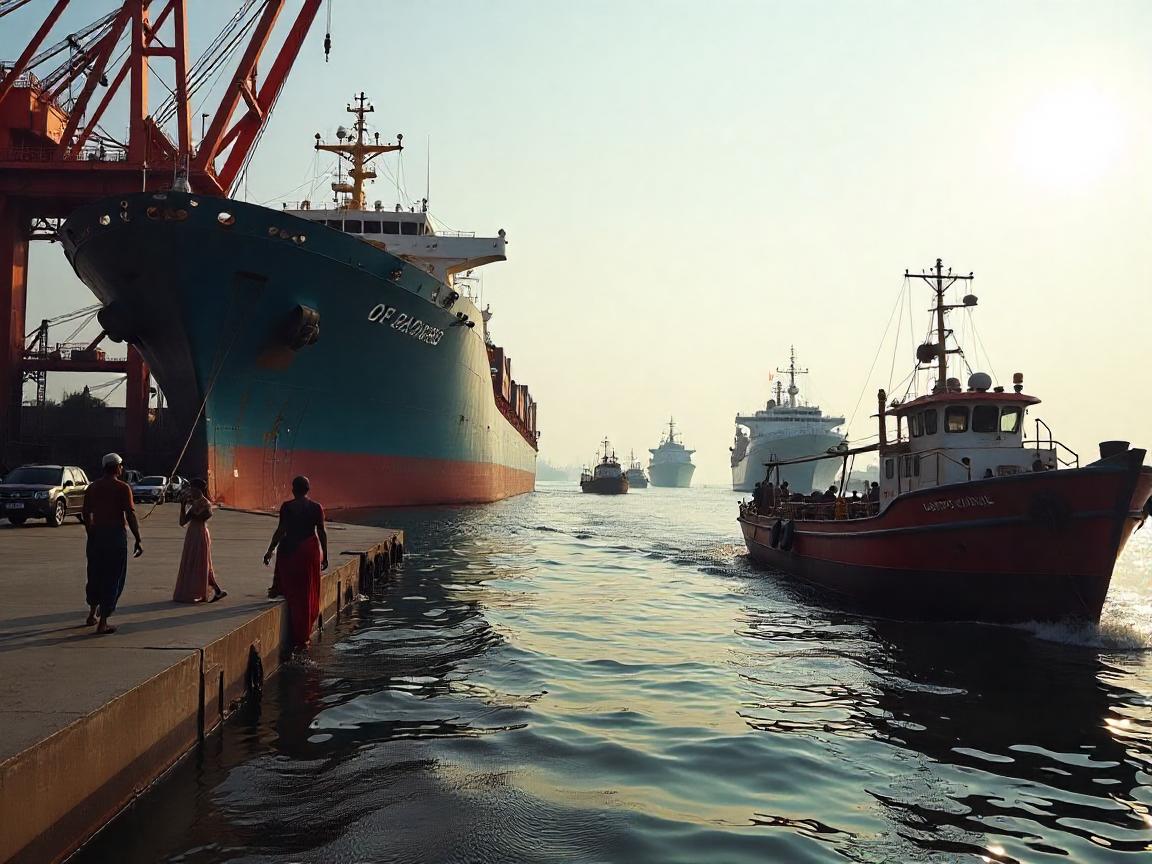Prezentare generală a potențialului de transbordare al Indiei
India se află în pragul de a deveni un jucător notabil în transbordul global, similar cu hub-uri consacrate precum Singapore și Dubai. Această evoluție nu este doar un vis fantezist; este susținută de indicatori economici puternici și de politici guvernamentale menite să îmbunătățească sectoarele de logistică și transport. În acest articol, vor fi examinate diverse elemente, care vor arăta pașii pe care India trebuie să-i facă pentru a-și realiza acest potențial și modul în care acesta impactează peisajul logistic.
Stadiul actual al transbordărilor în India
În prezent, aproximativ 90 la sută din încărcătura transbordată a Indiei — aproximativ 4,2 milioane TEU (Unități Echivalent Douăzeci de picioare)—traversează porturi străine. Această dependență mare de porturile internaționale costă națiunea peste 200 de milioane de dolari anual. Există o nevoie urgentă notabilă de a dezvolta infrastructura locală care să poată susține acest flux de mărfuri în India. Calea de urmat este clară: India trebuie să-și îmbunătățească facilitățile portuare, să perfecționeze procesele vamale și să promoveze un mediu de colaborare între sectoarele public și privat.
Domenii cheie de dezvoltare
- Dezvoltarea porturilor de adâncime: Extinderea și modernizarea porturilor existente pentru a primi nave mai mari vor fi esențiale.
- Vămuirea digitalizată: Optimizarea operațiunilor prin sisteme digitale pentru a spori eficiența, transparența și rapiditatea în manipularea mărfurilor.
- Logistică Multimodală Fluidă: Facilitarea unor tranziții fluide între diferite moduri de transport este esențială pentru menținerea integrității și a respectării termenelor de livrare a încărcăturii.
- Parteneriatele Public-Privat (PPP): Încurajarea colaborărilor eficiente între entitățile guvernamentale și companiile private ar stimula creșterea și inovația.
Government Initiatives
Guvernul indian a lansat recent mai multe inițiative care indică un angajament față de dezvoltarea logisticii. O astfel de inițiativă este lansarea Portul Vizhinjam, care își propune să devină un centru strategic în logistica maritimă a Indiei. Programe ca PM Gati Shakti și Politica Națională de Logistică sunt concepute pentru a semnala intenția corectă pentru dezvoltarea infrastructurii.
Strategii de Execuție
- Execuție Concentrată: Implementați planurile cu meticulozitate pentru a vă asigura că toate elementele lanțului logistic funcționează în armonie.
- Construirea de Alianțe Globale: Colaborați cu parteneri internaționali pentru a valorifica rețelele și expertiza existente în industria logistică.
- Soluții eficiente din punct de vedere al costurilor: Stabilește un cadru care să permită Indiei să se prezinte ca un centru autonom și rentabil pentru comerțul maritim global.
Implicații logistice ale transformării într-un hub
Transformarea Indiei într-un centru global de transbordare are implicații semnificative pentru sectorul logistic. Aceasta permite nu doar creșterea economică, ci și o schimbare în modul în care logistica este percepută și gestionată. Beneficiile cheie includ:
- Eficiență îmbunătățită: Localizarea transbordărilor va reduce timpul și costurile asociate cu transportul mărfurilor.
- Capacități sporite de manipulare a încărcăturilor: Capacitatea sporită va permite Indiei să gestioneze volume mai mari de mărfuri, îmbunătățind astfel capacitățile comerciale generale.
- Lanțuri de aprovizionare interne consolidate: Concentrarea pe porturile locale poate duce la o creștere a distribuției interne, impactând pozitiv diverse industrii.
GetTransport.com — Îmbunătățirea Soluțiilor de Logistică
Pe măsură ce națiuni precum India aspiră să își consolideze locul în logistica globală, servicii precum GetTransport.com pot juca un rol vital. Această platformă oferă soluții de transport cargo globale, la prețuri accesibile, adaptate pentru a satisface o varietate de nevoi, inclusiv relocări de birouri, mutări de locuințe și transportul de obiecte voluminoase precum mobilier și vehicule. Permițând clienților să își rezerve eficient cerințele logistice, GetTransport.com îmbunătățește experiența generală, reducând în același timp cheltuielile inutile.
Privind înainte
Demersul Indiei de a deveni un hub global de transbordare este, fără îndoială, dificil, dar realizabil cu strategiile și investițiile potrivite. Efortul colaborativ dintre organismele guvernamentale și sectorul privat este crucial pentru stimularea infrastructurii necesare pentru a sprijini această ambiție. În timp ce datele și previziunile conturează o imagine optimistă, experiența din lumea reală este esențială pentru a naviga prin complexitățile operaționale implicate.
Concluzie
În concluzie, pe măsură ce India își propune să evolueze într-un centru de transbordare esențial, implicațiile pentru logistica globală și dinamica comerțului sunt substanțiale. Potențialul de a economisi la costurile de transport maritim internațional, de a spori eficiența afacerilor locale și de a susține economia atârnă de balanță. Prin alinierea cu platforme precum GetTransport.com, cititorii pot accesa o soluție fiabilă și transparentă pentru nevoile lor logistice, asigurându-se că sunt bine echipați pentru a naviga prin peisajul în schimbare al transportului de mărfuri. Analizați cu ușurință opțiunile dumneavoastră de logistică și transport—Rezervați acum la GetTransport.com.

 Călătoria Indiei către poziția de lider maritim mondial">
Călătoria Indiei către poziția de lider maritim mondial">